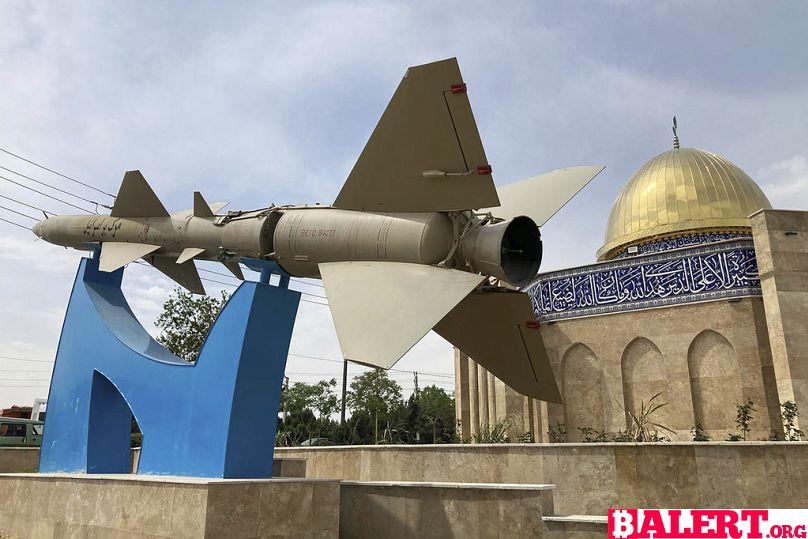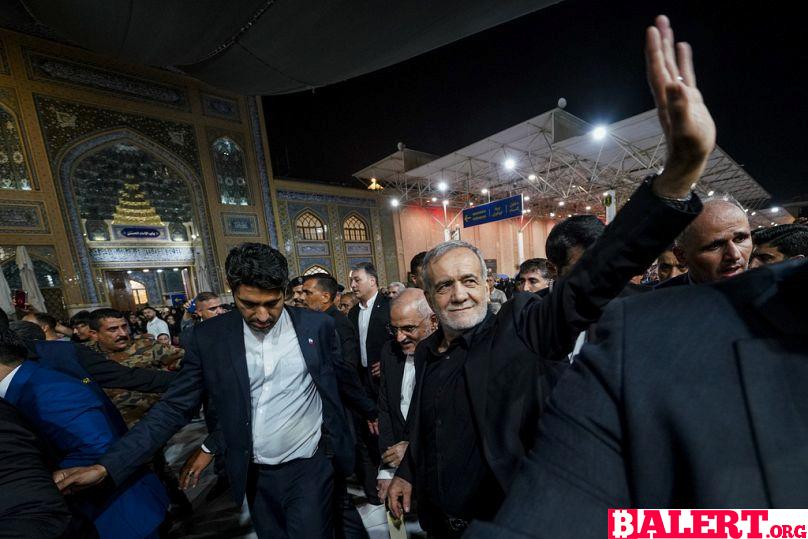World
Anniversary of Mahsa Jina Amini’s Death: Reflection and Activism in Iran
Marking the anniversary of Mahsa Jina Amini’s death, this article explores the ongoing reflections and activism in Iran, highlighting the impact of her legacy on the fight for women’s rights and social justice.

Anniversary of Mahsa Jina Amini’s Death Sparks Reflection and Renewed Activism

Monday marks two years since the tragic death of Mahsa Jina Amini, a young woman whose untimely demise following her arrest by Iran’s morality police ignited a wave of widespread protests across the nation. Her funeral in Saqqez, her hometown in the Kurdish region of Iran, served as the catalyst for a series of demonstrations that quickly spread to cities throughout the country. This time, the unrest was not confined to Tehran and other major urban centers; smaller, more conservative towns also erupted in solidarity.
As days turned into weeks, the number of demonstrators—predominantly from Generation Z—swelled significantly. The rapid progression of events took many by surprise, leading some to speculate about the potential collapse of the regime. Prominent political figures and celebrities united to form opposition coalitions, drafting plans for a future governance framework for Iran.
Solidarity marches and street demonstrations advocating for the rights of Iranian women and girls gained traction, forcing the government to momentarily retreat from enforcing certain restrictive regulations. However, as the movement matured, the demands of the youth became increasingly serious and focused, presenting a clear call for systemic change.
Yet, after several months, the momentum of the movement began to wane. The absence of genuine unity among opposition factions and the lack of substantial support from foreign powers, particularly the United States, contributed to this decline. The regime gradually regained control, launching waves of arbitrary arrests, politically motivated expulsions, and show trials aimed at quelling dissent.
Sudden Shift in Power Sparks Sense of Hope
Despite mounting international pressure and widespread human rights denunciations, the Iranian regime executed numerous protesters and imposed severe sentences on many others. Months later, in alignment with Ebrahim Raisi’s ultra-conservative government, Iran’s parliament voted in favor of the controversial “Hijab and Chastity Bill,” which was met with significant resistance from the populace.
Furthermore, Iran’s military support for the Kremlin during the war in Ukraine further isolated Raisi’s government, which eventually crumbled following his death—an event some speculate was orchestrated under dubious circumstances. With nuclear negotiations stalled and relations with the West, particularly the European Union, at an all-time low, Iran found itself increasingly alienated on the international stage.
Amid a deepening economic crisis and soaring inflation impacting the everyday lives of Iranians, the country appeared ripe for further unrest. However, the unexpected death of Raisi and the call for an early presidential election reignited a flicker of hope among segments of the population.
Related
- The women of Iran deserve a tough EU line — and Mahsa Amini the Sakharov Prize
- The West turned its gaze away from Iran, but the regime’s cruelties are far from over
The election of the former reformist health minister, particularly his decisive victory over staunch conservative Saeed Jalili in the runoff, brought a fresh wave of optimism to Iran’s disillusioned youth. As Massoud Pezeshkian takes office, many of his supporters are eagerly anticipating his ability to fulfill the promises made during his campaign.
Can Pezeshkian Turn Things Around?
History will ultimately serve as the judge of Pezeshkian’s tenure, but the crucial factor lies in the level of support he garners from Iran’s parallel power structures. Some believe his presidency represents a calculated strategy to maintain the regime’s grip on power. Whether Pezeshkian, viewed by many as a “safety valve” for the system, can successfully navigate a path toward gaining the trust of the youth and women remains uncertain.
Both the international community and the Iranian populace are keenly watching to determine if Pezeshkian’s presidency will signify a turning point or merely perpetuate the established patterns of the Islamic Republic. Ultimately, Iran’s standing on the international stage will require a shift away from warmongering and alliances with aggressors, focusing instead on peacebuilding and returning to a paradigm of “dialogue among civilizations.” The key question remains: Will Pezeshkian’s visit to New York signal a genuine gesture of friendship toward concerned nations, or will it merely reflect the longstanding positions of Iran’s leadership?
As the world looks on, it is clear that Iran must work diligently to rebuild its image and identity—an identity that has been compromised for the ambitions of a select few. Observing how the resumption of “dignified and respectful” dialogue unfolds, particularly in light of Europe’s increasingly complicated relations with Iran due to the Ukraine war, will be crucial.

‘Woman, Life, Freedom’ Lives On
In the lead-up to the anniversary of Amini’s death, major Kurdish parties have called for a general strike, with businesses in numerous Kurdish cities closing their doors in solidarity. This comes amid heightened security measures in Iran’s Kurdish regions, with reports indicating that Amini’s family has faced restrictions preventing them from leaving their home.
The dynamics within families are changing; men are increasingly recognizing the importance of treating women as equals, rather than subordinates. Despite facing brutal repression and various forms of governmental pressure—ranging from fines and social restrictions to the pervasive presence of officers in public spaces—brave young women continue to resist the mandatory hijab requirements whenever possible.
The “Woman, Life, Freedom” movement has not faded; instead, it persists in a new and evolving form, demonstrating the resilience and determination of those advocating for change in Iran.
Babak Kamiar is the Head of the Persian Service at Euronews.
At Euronews, we believe all views matter. Contact us at view@euronews.com to send pitches or submissions and be part of the conversation.
World
Dominique Pelicot Testifies in Harrowing Rape Trial
Join us as Dominique Pelicot courageously testifies in a harrowing rape trial, shedding light on the complexities of trauma and justice. Her powerful story raises crucial questions about the legal system and the importance of support for survivors.

Dominique Pelicot Takes the Stand in Shocking Rape Trial
In a courtroom drama that has captivated France and garnered international attention, Dominique Pelicot, the man at the center of a harrowing rape trial, finally addressed the court. With tears streaming down his face, he recounted how his wife had been instrumental in helping him cope with a tumultuous past marked by trauma. He revealed that he had endured a sexual assault at the tender age of nine while hospitalized, and he also witnessed a gang rape during his teenage years while working as an apprentice electrician on a construction site.
“She didn’t deserve this, I acknowledge that,” Mr. Pelicot stated, his voice barely audible as he struggled to convey his emotions. The gravity of the situation weighed heavily on him, and the courtroom fell silent, straining to catch his every word.
Now 71 years old, Mr. Pelicot faces serious allegations of drugging his wife, Gisèle Pelicot, whom he has been married to for half a century, over a span of nearly ten years. Prosecutors contend that he used drugs to render her comatose, allowing him to rape her repeatedly. Furthermore, authorities allege that he went so far as to invite numerous men into their home, facilitating a nightmarish scenario where they, too, engaged in the assault of his wife.
Overall, 51 men, including Mr. Pelicot, are on trial concurrently, primarily facing charges related to the aggravated rape of Ms. Pelicot. Among them, one individual has already pleaded guilty to similar crimes, admitting to drugging his own wife to assault her and inviting Mr. Pelicot to partake in the horrific act while she was incapacitated.
Mr. Pelicot’s unexpected testimony came after a tumultuous start to the trial. Just a week in, he was stricken with severe health issues that forced him to miss four consecutive days in court. The head judge ultimately decided to postpone proceedings, as Mr. Pelicot was diagnosed with kidney stones, a kidney infection, and prostate complications, adding yet another layer of complexity to this already harrowing case.
World
Meta Bans Russian State Media Outlets from Social Media Platforms
Explore the implications of Meta’s decision to ban Russian state media outlets from its social media platforms. Understand the impact on information dissemination and the ongoing battle against misinformation in the digital landscape.

Meta Imposes Global Ban on Russian State Media Outlets
In a significant move, Meta Platforms, Inc., the parent company of Facebook, has announced the prohibition of Russian state media outlets, including RT (Russia Today) and Rossiya Segodnya, from all its social media platforms. The decision stems from the company’s concerns regarding the deceptive strategies employed by these media organizations to execute covert influence operations across the internet.
Meta made this announcement on Monday, emphasizing that the ban will be enforced worldwide across its various platforms, such as Instagram, WhatsApp, and Threads. The rollout of this ban is expected to take place over the coming days.
Statement from Meta
A spokesperson for Meta elaborated on the decision, stating, “After careful consideration, we have expanded our ongoing enforcement actions against Russian state media outlets. As a result, Rossiya Segodnya, RT, and other affiliated entities are now banned from our applications globally due to their involvement in foreign interference activities.”
For further insights into this development, watch the video in the player above.
World
Trump Recalls Alleged Assassination Attempt While Golfing
Explore Donald Trump’s chilling recollection of an alleged assassination attempt he experienced while enjoying a round of golf. Delve into the tense moments and his reflections on safety, fame, and the unpredictability of public life.

In a recent interview on the social media platform X, Republican presidential nominee Donald Trump recounted a harrowing incident he claims to have experienced while playing golf. Trump described how, during a peaceful Sunday morning round with friends, the tranquility of the day was abruptly shattered by the sound of gunfire in the air.
“It was a beautiful day, everything was just perfect,” Trump reflected. “Then all of a sudden, we heard shots being fired—probably around four or five in total.” He went on to explain that a Secret Service agent was the first to spot the suspect, who was allegedly armed with an AK-47, a powerful assault rifle.
“The agent saw the barrel of the weapon and immediately took action, returning fire at the barrel and aiming in the direction of the bushes,” Trump detailed. “I would have loved to have sunk that last putt, but we decided it was best to leave the scene promptly.”
Trump expressed his gratitude towards the agents and a vigilant civilian who aided in tracking down the suspect, who was eventually apprehended following a high-speed chase.
Suspect Faces Multiple Federal Gun Charges
The FBI has identified the suspect as Ryan Wesley Routh, accusing him of targeting Trump during his time at the golf club in West Palm Beach, Florida. According to an FBI report, Routh had allegedly hidden among the hedges of the golf course for an astonishing 12 hours. Authorities discovered an SKS-style assault rifle, a GoPro camera, and a bag of food at the scene.
The 58-year-old Routh is now facing two serious federal gun charges. If convicted on both counts, he could face a combined maximum sentence of 20 years in prison. Notably, neither of the charges is directly related to an assassination attempt. The first charge pertains to possessing a firearm despite a prior felony conviction, which carries a potential 15-year sentence, a fine of $250,000 (€225,000), and three years of supervised release.
The second charge involves possession of a firearm with an obliterated serial number, which could result in a five-year prison term, the same financial penalties, and also three years of supervised release. As the investigation continues, additional charges could be forthcoming.
While the motive behind Routh’s actions remains unclear, his digital footprint reveals strong political affiliations, particularly concerning issues surrounding Ukraine and China. Routh consistently expressed support for Ukraine across various social media platforms, even claiming to have orchestrated a recruitment scheme for international volunteers aiming to assist Ukraine in its fight against Russia’s invasion. This behavior has been denounced by Ukrainian soldiers and members of the International Legion, who disavowed Routh’s actions and motives.
-

 Business5 months ago
Business5 months agoThe Significance of Jackson Hole: A Central Banking Tradition
-

 Tech4 months ago
Tech4 months agoNew Leaks and Features About the Samsung Galaxy S25 Ultra
-

 Business6 months ago
Business6 months agoObituary: Dan Collins
-

 Article7 months ago
Article7 months agoCreative Design Applications Developed with Artificial Intelligence
-

 Business4 months ago
Business4 months agoBhutan’s Strategic Investment in Bitcoin: A New Era for the Himalayan Kingdom
-

 World4 months ago
World4 months agoThierry Breton Resigns: Impact on European Union Leadership
-

 Gaming4 months ago
Gaming4 months agoNew Details and Trailer Released for Dead Rising Deluxe Remaster
-

 Gaming4 months ago
Gaming4 months agoNew Details for Alan Wake 2 and PlayStation 5 Pro Announcement












